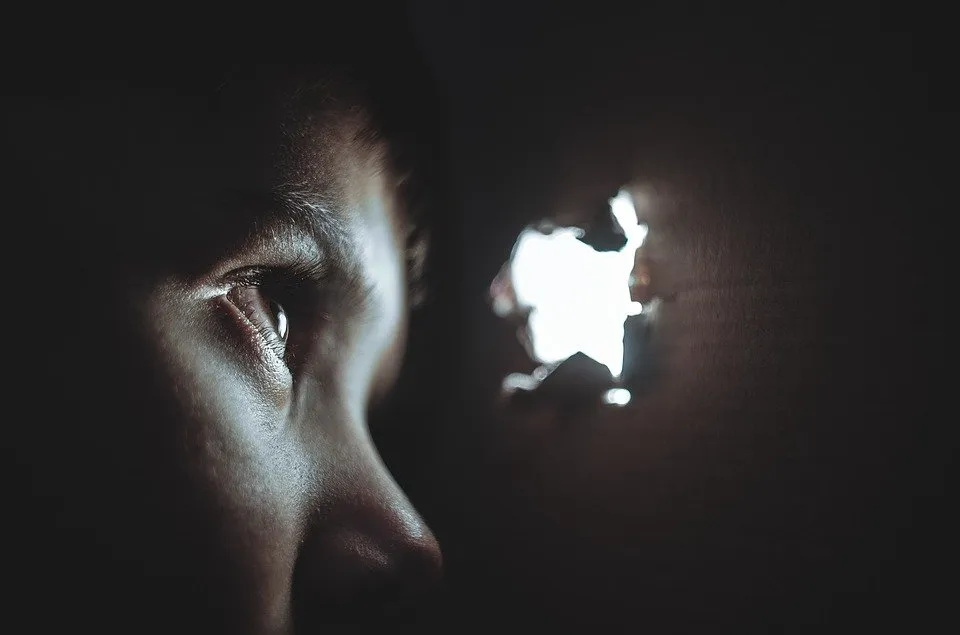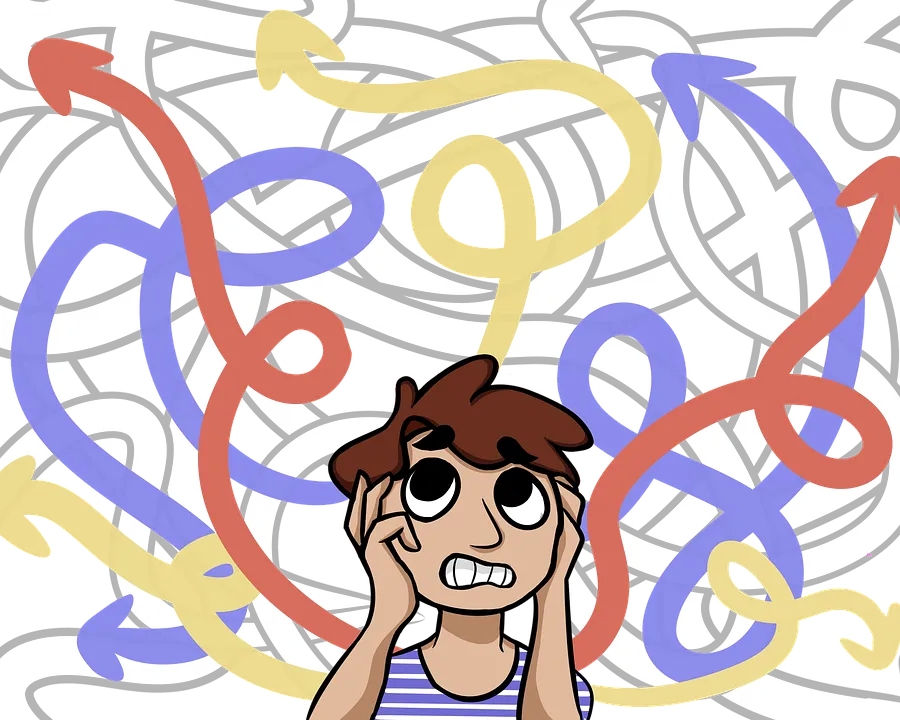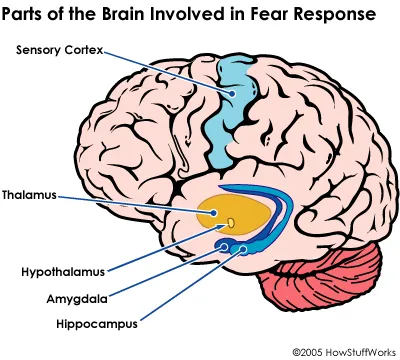
Introduction
It’s been almost a month since I last posted…I recently came back from a long-wanted vacation abroad. I didn’t have a good internet connection, so I could not be active on Steemit. But now I am back, feeling refreshed to read and write!
Before leaving, I had a draft on my laptop’s desktop about the topic of fear. I couldn’t finish it before leaving, so I left it undone. When I came back and logged in I read a beautiful post by @abigail-dantes regarding the same issue. I strongly suggest you read her piece. You would not be disappointed.
Anyway, at first I decided to discard this article, because my initial goal on this platform is to contribute with various psychology content and since a colleague of mine already discussed the same topic I thought I would drop mine. But since she kindly asked not to do so and post it anyway, here it is.
Why I decided to discuss this topic?
Today discussing the topic of fear is more relevant than ever. From professional point of view I could say that my job is related to studying and recognizing fear in other people. From personal point of view my purpose is to study and recognize fear in myself.

Why recognizing fear is important?
Everyone is afraid of something in their lives. Whoever says that they are not afraid of anything ever either lies or have not realized that they do. Being afraid is natural. The purpose of fear is to help you protect yourself in a dangerous situation. Being afraid and recognize danger on time helped our ancestors to survive.However, because most things that we’re afraid of today aren’t life-threatening, our body’s response to fear actually does more harm than good.
The fears of the modern man are related to all sorts of anxiety disorders, phobias and panic attacks. These “three enemies of our psychological life” are more dangerous than the wild animals our ancestors had to deal with. Fears could be caused by simple visual stimuli like seeing a snake or spider, but the ones caused by traumatic experiences in our early years cause damage for a lifetime, their true origin often remaining hidden. This causes the person often to project their fear to the ones around them, their family and children. And while this psychoanalytical point of view is really interesting and worth discussing it was not this aspect of the topic which provoked me to write this article.
Instead I would like to discuss how we can use our fears in a positive way and make them work for us.
But before we could do this, the first thing we must do is to define it and to understand it. So, let’s begin.

What is fear?
Fear is a natural and powerful primitive human emotion. Experiencing fear is related to our survival mechanism.Whenever we are in danger, fear is what keeps us alert and ready. Fear could be reffered to as biochemical and emotional response. While on biochemical level, the fear response is universal, the emotional response is highly individual.
Biochemical Reaction
Whenever we are presented with a stimulus that causes us to experience fear, we start a chain reaction in our brain. Our brain is extremely complex organ, which we still are unable to fully understand today. The brain cells (neurons) are in constant interaction with each other and form a “network of communications”, which is responsible for everything we sense, think and do. While some of these communications are responsible for our conscious thoughts and actions, others are in the core of systems, which are responsible for our autonomic responses. The biochemical fear response is almost entirely autonomic. In other words, we are unable to control how and when biochemical processes trigger, as we experience a threatening stimulus.
Experiencing fear, triggers the production of chemicals and hormones such as cortisol and adrenaline. They cause an increase in the heart activity, fast breathing and energized muscles, among other things. This process is also known as the “fight-or-flight response”. During this response, our body prepares itself to either enter combat or run away. This biochemical reaction is likely an evolutionary development.
While this fight or flight response was a great tool to save us from danger in the early days of mankind, today, our fears are more related to our emotions rather than physical threats. Here it is important to state, that our brain does not differ between the two.
Whenever we experience fear, our body would respond as if we are facing a physical threat, meaning that the same physiological processes would trigger and the same fight or flight response would occur in order to prepare us to either fight or flee. The stress hormone cortisol, as well as your adrenaline, starts pumping so that you can react quickly to danger.
Whenever we experience fear, our stress levels are so high and our brain is so busy diverting our energy to our limbs, that it is almost impossible to think rationally. That’s why it’s important to understand that a person is highly unlikely to make a rational decision for something important while being afraid.
On physiological level, this person is not capable to access their resources and make them work for them. Not only that but if you are anxious or you experience sustained fear because of a current traumatic event, then the fight or flight response would cause your brain to release cortisol without the ability to dump its immense load. As a result, sustained worry and fear can, in fact, change your brain architecture, as well as your impulse control.
Emotional Reaction
Although the physical reaction is the same, fear may be perceived as either positive or negative, depending on the person.When we experience fear, some of the same chemical responses that occur in our brains could also occur when we positive emotions like happiness and excitement fear under certain circumstances can be seen as something fun – for example when you do some extreme activity or watch a scary movie with friends.
Overall the emotional reaction related to fear could be highly individual. There are some people who are called “adrenaline junkies”, constantly active in extreme sports and other fear-inducing thrill situations. And there are other people, who have a negative reaction to the feeling of fear. They avoid all sorts of scary situations.

What causes fear?
Even though fear is considered as primitive human emotion, it is considered to be incredibly complex. With some people, fear might be related to previous experience of a tragic event (trauma), while with others it could occur when an entirely new stimulus is presented. Fears could be trivial – for example fear of heights, but their roots could also lie in the person’s subconscious thoughts.
In the scientific community there are a lot of controversies regarding fear. While some scientists are trying to understand exactly what fear is and what causes it, others are not sure whether it's a sort of behavior that's only observable or something our brains are physically wired to do.
What is known for sure is that whenever someone is repeatedly exposed to similar fearful conditions, he becomes habituated and experiences less fear every time. In terms of biochemical response, being habituated to certain conditions or situations means that you need to find new and bigger thrills that would cause there chemical release in your brain.
This approach could also help a person to get through extreme fears like phobias or panic attacks.
Finally, lets take a peek into the

Physiology of fear
Our neurons are in constant communication, transferring information and formulationg responses. When it comes to experiencing different emotions, as well as fear, different areas of our brain are triggered and participate in the psychophysiological response. Of course, some of these areas are not so active as others - scientific research shows that certain parts of the brain play central roles in the process of fear.
This is a brief introduction to the “physiology of fear”, so to keep it simple while at the same time fulfill this article’s goal, we must explain the brain structures illustrated above:
• Sensory cortex – Our sensory cortex is responsible for our choices, actions, executive functions. When we are presented with different outside stimuli, the sensory cortex is responsible for the interpretation of the sensory data;
• Thalamus – The thalamus decides where to send the incoming sensory data from our eyes, ears, mouth or skin;
• Hippocampus – The hippocampus is responsible for storing and retrieving conscious memories. It also processes sets of stimuli in order to establish a context;
• Amygdala – The amygdala is probably the most important structure related to fear and emotions in general. Its purpose is to decode emotions, determine possible threat and process the fear memories
• Hypothalamus – Is responsible for the regulation of our VNS – it activates "fight or flight" response.
The process of experiencing fear begins when a stimulus which is considered by the subject as “scary” and ends with the physiological “fight-or-flight” response. The mechanics of experiencing fear are easily understood in the context of stimulus-response. It is also really easy to avoid unpleasant situations by simply staying away from what causes you to feel fear.

But what if your mind is the stimulus?
What about all the times you feel anxious about something to such degree that you can’t function properly and this fear totally disrupts your life? Our brain cannot differ an actual physical threat from psychological stimulus. If you momentarily feel fear provoked by anticipating an event or negative emotion, the same physiological processes would occur. The same areas of the brain would trigger, the same chemicals would be released and all would come down to what we call “the fight or flight” response. The only difference is – you can’t “flight”.
So what can you do then? Well, obviously – fight. You see, the best part of being afraid is not when the stimuli is no longer presented – it’s when you’ve learned how to overcome it.
Fear could be both related to negative and positive outcomes.
There are always two types of scenarios – the first is your worst thoughts come true and the second is you defeating yourself and growing stronger. But the best part - it is up to you.
That’s right. We actually need fear. It’s what keeps us going.
Everyone is afraid.
Often people are ashamed of their fears. Such mixture of negative emotions could only worsen your conditions. It’s okay. Identify your fears, no matter big or small. Call them with their true names. Do not substitute them with other situations or try to avoid them. If you have a close person you could trust – discuss them. That’s the most important and hardest part.
Challenge yourself.
Of course, at first going towards the things which scare you the most is counter-intuitive. It takes strong will and determination for a person to challenge him or herself and do a thing at which their whole body screams against. Remember that the key to overcome fear is not by avoiding stressful situations. It’s about engaging as much as you can in such. In the motorbike world we have a saying – “Happiness is not behind the corner – happiness is the corner.” – meaning that in that process – of being afraid, of challenging yourself you are free from anything and after that – a different and stronger individual.
The outcome does not exist.
Always remember that in the core of your fear is your representation of what is about to happen, but it does not exist yet. How ironic is that we pretend to me smart and rational beings and yet we are controlled by not existing situations. It is up to you. You cannot control everything in the outside world, but you can control your response. If you are familiar with what you are afraid of – it does not make you afraid anymore. You can control it’s future form and make it exist in a way you decide it.

Conclusion
Hopefully you enjoyed this short article and you got the message I tried to deliver. Once again I invite you to read @abigail-dantes work about fear, and also to check more quality content under the steemSTEM hashtag. If you like what you read, please upvote or resteem my article – it really means a lot! If you want to add to this topic or have something to discuss, please drop a comment bellow! I really enjoy discussing different psychology topics :) Cheers!
Finally my questions to you are: What are you afraid of? and Are you working on overcoming it?
Pictures:
Sources:

Contribute STEM content using the #steemstem tag | Support steemstem authors | Join our curation trail | Visit our Discord community | Delegate SP to steemstem